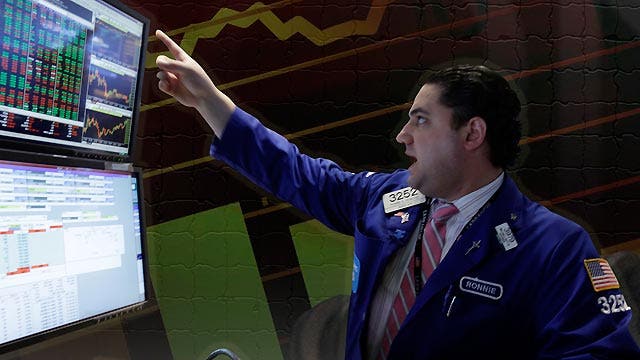New tech aims to prevent 'prediction market' regulation
Maxim Lott on new technology that promises government-proof 'prediction markets'
A group of developers have come up with a new concept called “Augur”, which they hope will make it nearly impossible for government to regulate “prediction markets.”
Prediction markets are websites where people bet on events like presidential elections and the Oscars. Such markets have proven popular and studies have found that the betting odds from such sites are even better at predicting election winners than polls are. But they face government regulatory hurdles, and three years ago regulators shut down the world’s largest one, Intrade.com.
Augur aims to prevent such a shutdown from happening again by being a prediction market that operates as a self-sustaining computer program which would not need a corporation to operate it.
Governments might then be unable to stop it, because there would be no company to shut down. Instead, the regulators would be up against thousands of copies of a computer program located on personal computers all over the world.
“Hundreds of thousands of computers would have to be shut down in order for the system to be shut down,” Augur spokesman Tony Sakich told FoxNews.com.
Augur is expected to launch early in 2016. This week, it launched a crowdfunding campaign that raised $1.6 million by Wednesday.
“It will be an open platform where for the first time anyone from anywhere will be able to create an prediction market about anything,” Augur’s Perry Despeignes told FoxNews.com.
The market will operate only in Bitcoin and other digital currencies, which are similarly hard for government to regulate.
A federal agency called the Commodity Futures Trading Commission (CFTC) has used strong language in the past, noting in 2012 when it shut down Intrade.com that: “Today's action should make it clear that we will intervene in the ‘prediction' markets, wherever they may be based.”
That year, the CFTC also refused to grant licenses for prediction markets on the grounds that it may “have an adverse effect on the integrity of elections.”
While regulations remain the same, the CFTC’s leadership has changed since then, and last year the agency approved a limited university-run prediction market called PredictIt.com.
Despite Augur’s focus on ensuring that government could not censor the market even if it wanted to, Augur notes that the market is not necessarily illegal.
Asked whether a Bitcoin prediction market would be illegal, Commodity Futures Trading Commission agency spokesman Steven Adamske told FoxNews.com last year that the question is “too speculative for us.”
CFTC spokeswoman Donna Faulk-White confirmed to FoxNews.com that is still the case now.
There are many technical hurdles that the Augur developers say they have surmounted. One problem was that because the computer program has to be able to run without any company operating it, it needs a way to determine the winner of a bet on its own.
The solution the developers came up with is to have the program ask certain Augur users who are called “reputation point holders” — similar to shareholders because they automatically get a portion of the trading fees generated on Augur — who won the bet. For instance, thousands of users bet on an election, then after the election, the program asks everyone who owns “reputation points” to certify who really won.
Augur’s developers say that reputation point holders will have an incentive to answer truthfully because if they don’t — and the Augur system stops working well — people will stop trading on it and the “reputation points” will stop bringing in much revenue for them. Augur also automatically reduces the voting power of shareholders when they vote abnormally in an attempt to discourage people from trying to game the system.
Anyone can buy these “reputation points,” which would also be hard for the government to control because they operate similarly to bitcoin and can be owned anonymously.
Augur is a new experiment, however, and experts are unsure if it will work. They say that enough people need to use it and that they must be very careful about computer security.
“It is an open question if enough people are this willing and careful,” Robin Hanson, an economist at George Mason University who helped pioneer the concept of prediction markets and is an unpaid advisor to Augur, told FoxNews.com.
“If Augur can implement the infrastructure they’ve designed, and get enough people to use it, then yes, willing individuals could successfully evade anti-gambling regulations,” he added.
The author, Maxim Lott, can be reached on Twitter at @maximlott or at maxim.lott@foxnews.com









































